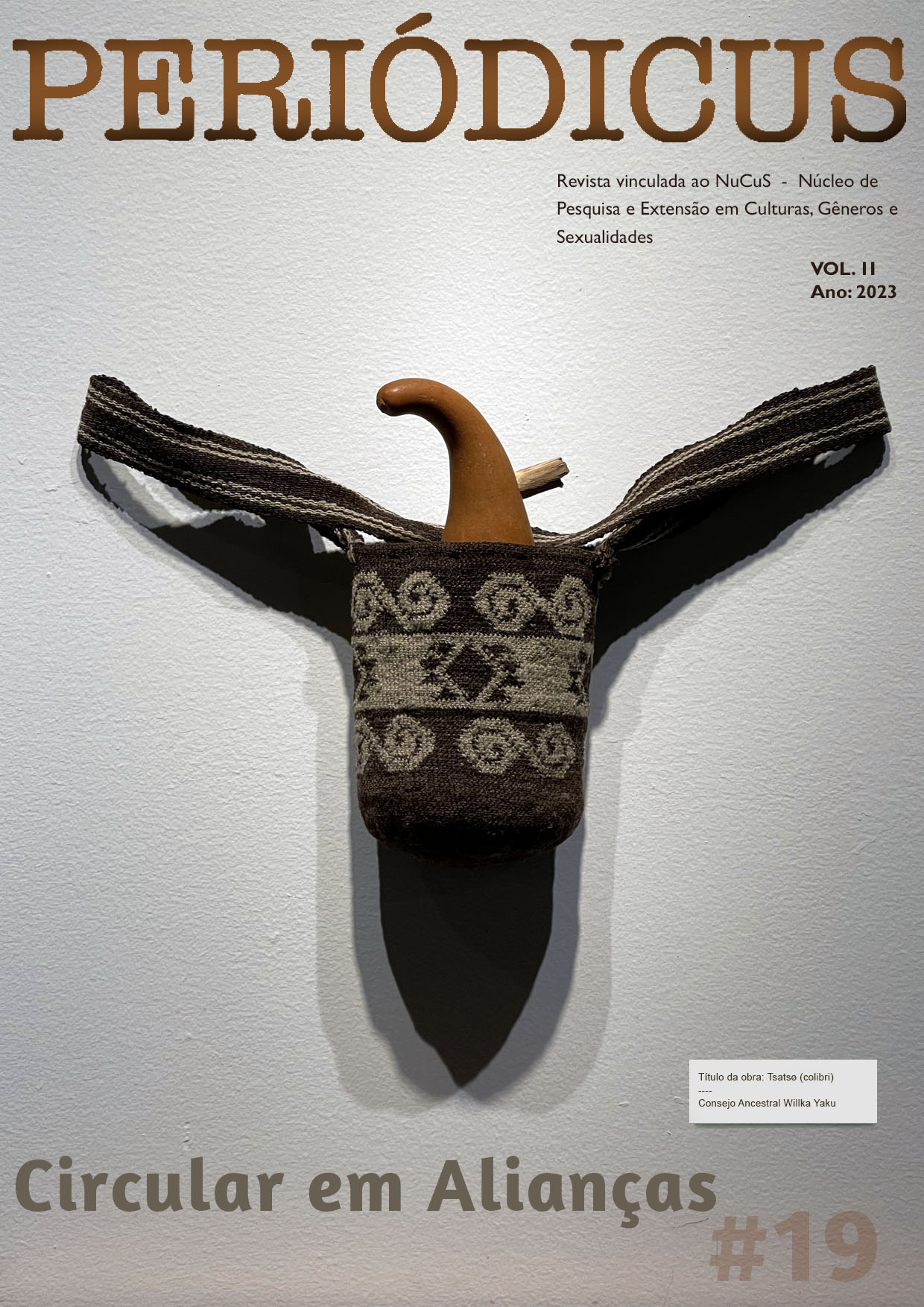Subaltern masculinities
an ethnobiography with African immigrants in Brazil
DOI:
https://doi.org/10.9771/peri.v2i19.55016Abstract
The article analyses masculinities of African men in the scenario of migration and diaspora in the city of Fortaleza. What is it to be a man, black, African and immigrant in Brazil? The reflection is based on ethnographic research and interviews with Africans of different nationalities, combined with the author's biographical experiences, configuring an ethnobiography. The notions of hegemonic and subaltern masculinities are moved. African men are racialized, discriminated, and sexualized, occupying a secondary place in society. They are made visible by the imaginary of the colonial past. The university and precarious work constitute means of insertion. The migratory context allows the construction of images of male virility between Africa and Brazil. They present subaltern masculinities in front of Brazilian society and hegemonic in front of African women, valued by Brazilian women. The interactions reveal negotiations, in the midst of colonial sexual representations, marked by racial and cultural tensions. The living and experience in the diaspora shape new patterns of masculinity, which challenge gender relations and domination and, to rethink the formulations of man as executioner and woman as victim.
Downloads
Downloads
Published
How to Cite
Issue
Section
License
Copyright (c) 2023 Ercilio Neves Brandão Langa

This work is licensed under a Creative Commons Attribution-NonCommercial 4.0 International License.
Authors who publish in this journal agree to the following terms:
Authors retain copyright and grant the journal the right of first publication, with the work simultaneously licensed under a Creative Commons Attribution Noncommercial License that allows the work to be shared with acknowledgment of authorship and initial publication in this journal, but prohibits commercial use.
Authors are authorized to enter into separate additional contracts for non-exclusive distribution of the version of the work published in this journal (e.g., publishing in an institutional repository or as a book chapter), with acknowledgment of authorship and initial publication in this journal.
Authors are permitted and encouraged to publish and distribute their work online (e.g., in institutional repositories or on their personal website) at any point before or during the editorial process, as this can generate productive changes and increase the impact and citation of the published work (see The Effect of Open Access).








